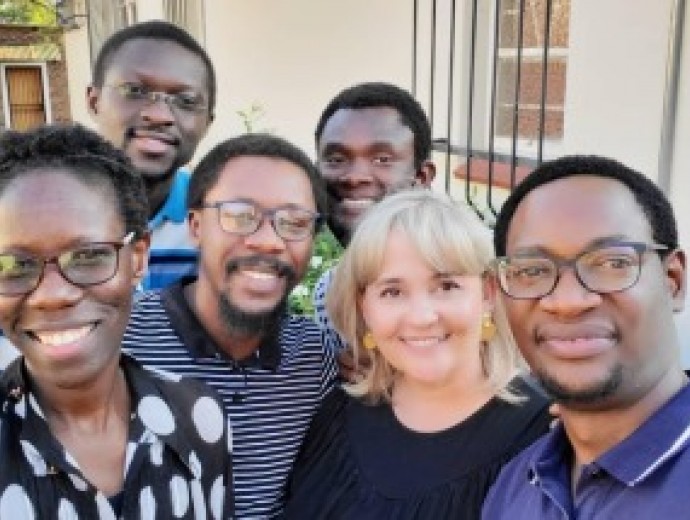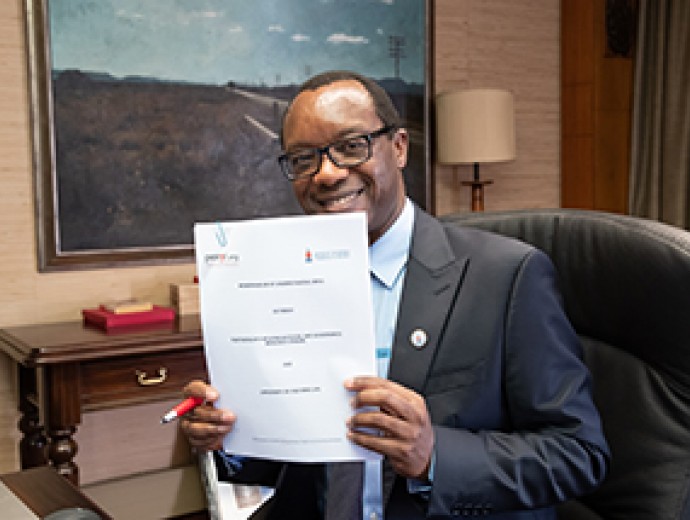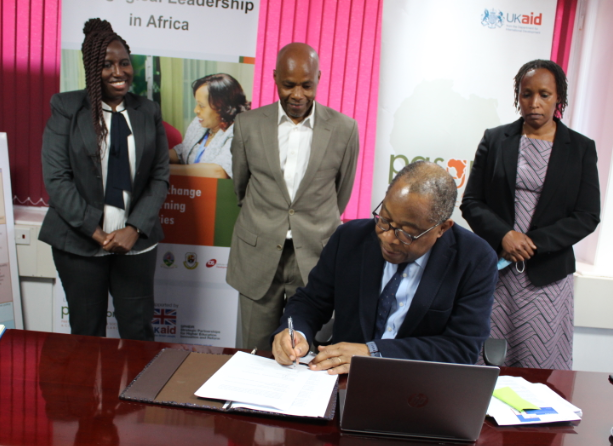A new partnership between South Africa’s University of Pretoria and
the Kenya-headquartered Partnership for African Social Governance
Research (PASGR) will boost capacity-building, especially for
postgraduate students and early- to mid-career researchers in Africa.
The
collaboration, formalised this week (21 September) during a virtual
meeting of senior staff from the two institutions and other higher
education experts from Africa, will be led by the University of Pretoria
(UP) and PASGR and implemented in collaboration with Nigeria’s
University of Ibadan and Kenya’s University of Nairobi.
The
partnership will be anchored under five flagship programmes of PASGR,
including the collaborative doctoral programme in public policy to be
offered by UP, University of Ibadan and University of Nairobi. For this
programme, PASGR has received seed funding from the Carnegie Corporation
of New York to support 15 fellows and pilot the doctoral programme at
the three universities.
Other programmes include a collaborative
masters programme in research and public policy; a pedagogical
leadership in Africa programme; a research and policy training programme
for early- to mid-career researchers; and collaborative research grants
relating to important public policy issues in Africa.
According
to a statement about the partnership, it will also focus on
strengthening public policy through other initiatives such as the
research partnership programme between UK Research and Innovation (UKRI)
and the African Research Universities Alliance’s (ARUA) Food Systems
Research Networks for Africa project which seeks to “strengthen food
systems research capabilities and the translation of evidence into
implementable policy solutions and practical interventions” in support
of the United Nations’ Agenda 2030 on Sustainable Development.
“Partnerships
are key to how higher education should be reimagined post COVID-19,”
said UP Vice-Chancellor Professor Tawana Kupe.
“This collaboration will establish a model for partnership between universities and non-profit organisations,” said Kupe.
PASGR
Executive Director Professor Tade Aina described the partnership as
another “landmark event” in building excellence in social sciences, the
arts and humanities.
“This is an intellectual and academic
relationship that is central to Africa and will bring out the
innovation, creativity and work needed to build the continent,” said
Aina.
He said despite the challenges facing African universities
and countries, the partnership should pave the way for further
collaborations aimed at building better universities.
UP Director
of Institutional Planning Dr Gerald Ouma said collaborations had become a
necessity and this was amplified by COVID-19. He said the continent
would need more international networks of collaboration to support young
and upcoming academics and early- to mid-career researchers.
Dr Beatrice Muganda, Director of Higher Education Programme at PASGR, said the partnership would help students across Africa to develop competencies for shaping public policy across a wide spectrum of sectors, from social issues such as identity crises, to migration, security, food systems and public health.
She said it would help students and academics from Africa to benefit from the knowledge and skills of the host universities.
Kupe
described the partnership as a South-South collaboration that will help
develop knowledge that can be translated into programmes solving
critical issues of development in Africa.
Professor Karuti
Kanyinga, a PASGR board member, said it would give international
visibility to African intellectual products and help to drive an agenda
that is anchored on African ideals and help to bridge interdisciplinary
gaps.
Kanyinga expressed concern that many countries in Africa
still neglect research and evidence in policy-making, a culture the
partnership will endeavour to change, he said. “This partnership will
help lobby African governments to use evidence in decision-making. The
more we have such partnerships, the greater the voice of African
scholars in policy-making.”
This has been reposted from https://www.universityworldnews.com/post.php?story=2020092313380718


